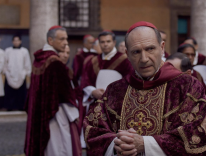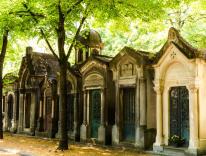The following article appeared in the December 19, 1958, issue of Commonweal.
As time passes I come more and more to realize that for the adult the past swiftly grows dim. Two years ago, ten years ago, the wartime years in the Army are covered with mist. Yet it is possible to evoke the years from six to sixteen with immediate clarity.
I thought I had forgotten about my four years as a pupil at Our Lady of the Angels school in Chicago. Then those seating headlines which described one of the great tragedies of modern history appeared, and memories rushed back like a flood. The very church building where I was baptized, later turned into a school, was the scene of such horror as is rarely visited on Americans.
Here I first attended Mass. Here I received Confirmation. Here, like the eighty-seven children who
lost their lives, I was taught my first lessons by devoted nuns like the three who lost their lives in the fire.
Our Lady of the Angels in my day was a very ordinary parochial school, practically indistinguishable from hundreds like it in the Archdiocese of Chicago. Like the others, it did its work so quietly it was barely known beyond the confines of the city and the order of Sisters which administered it. But as I write, there are pictures of the building which has been familiar to me all my life, in newspapers all over the world. And I suppose that there are people like me, some of them perhaps scattered over the globe, who feel an extraordinary sense of personal identification with the tragedy because long ago that plain church building was the center of their small lives.
Just about a year ago I happened to be in Chicago and made a lonely sentimental journey to the parish which I left so many years ago. There were many changes; a much larger, grander church had taken the place of the modest building we knew, and the old church had been remodeled to serve as a school building. Yet everything was very much as I remembered it. I recall thinking at the time that though I had changed a great deal and had enjoyed experiences such as I never dreamed of as a child, I was forever tied to this place, in the formative years it had been my San Pietro, my Notre Dame, my Santa Sophia, my Holy Sepulcher. Here, I reminded myself, hundreds of us from the bleak streets of Chicago were first introduced to the glory and beauty of Catholicism: here we were incorporated into the great Western tradition that stretches back, back, back to the saints and prophets of old, so that in later years when I was fortunate enough to visit Rome, Paris, Istanbul and Jerusalem, it was not wholly as a stranger but as one coming home that I knelt before their altars.
I remember thinking this at the time I stood again outside Our Lady of the Angels. I remember wondering about the kids who now sat in the familiar classrooms under the tutelage of a new generation of nuns, some of whom—it struck me sharply—were years younger than I. I wondered whether life would be as good to these youngsters as it has been to me and whether in time their world too would broaden out from the parochial limits of Our Lady of the Angels to undreamed of horizons. Watching them playing around the school, I saw myself when I was their age and I sighed a little over the passing of innocence and the death of dreams, as the middle-aging are wont to do when they return to the places of their past.
Then I turned around and forgot about Our Lady of the Angels and the kids playing outside until the day the terrible thing happened.
There are no words for the kind of tragedy that lifted Our Lady of the Angels out of obscurity; attempts to find soothing words of consolation or to draw morals from it strike me as a kind of impiety. One’s heart goes out to the stricken parents, the valiant nuns, the children who have survived—but words are too cheap to offer them. They have been called upon to face up to mystery, actually the most terrible mystery of all, and facing mystery is something that everyone must do for himself. In the face of such a disaster one must fall back on faith or find only bitter meaninglessness in the universe. To my mind, this is the greatest challenge faith offers—to believe that the hand of God has not been withdrawn from the world when such things happen. It is human to look for meaning, some immediate, recognizable meaning, so that one can say the children did not die in vain—but to do that is to avoid mystery, not to face it.
In the presence of the grief of those who were stricken by the tragedy one can only ask that they be strengthened in faith, nurtured in hope and that they grow in charity. Remembering the boundless faith of parochial school children from my own days at Our Lady of the Angels, I think I can say that this harsh wisdom comes easily only to those who are as innocent as the ones who perished. As we grow older, all of us may find it easier to express such wisdom—but, God help us, how much harder it is to hold on to it.
Most of us go through life unburdened by its demands. It is part of the mystery, however, that those who are called upon to accept it with finality are specially blessed. What a dreadful thing love is, said
Father Zossima. And yet love is the beginning and the end of Christianity.
______________
John Cogley (1916-1976) was an editor at Commonweal from 1949 to 1955.

